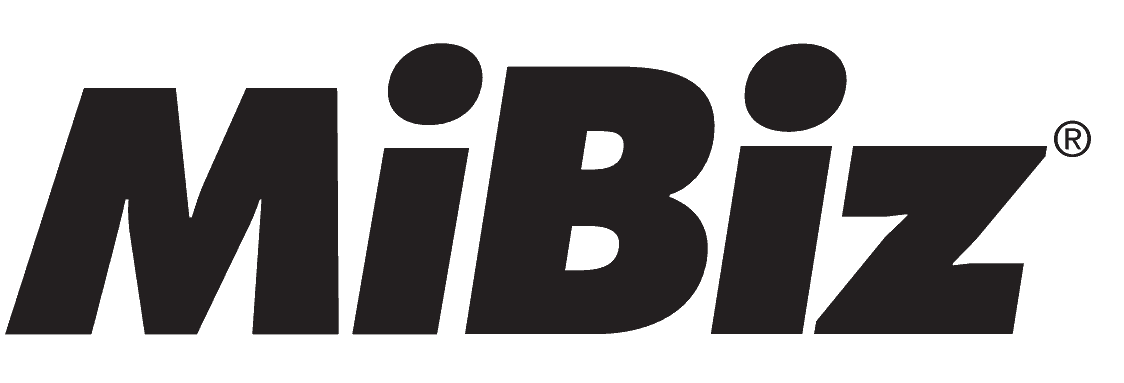
Drug Crimes
Delivering Outstanding Results Since 1987
Kalamazoo Drug Crime Defense Attorneys
Levine & Levine: Trusted Litigators Since 1987
A drug conviction can haunt you for the rest of your life. In addition to fines, license sanctions, and prison sentences, you also end up with a criminal record. This can cause irreparable damage to your reputation and seriously impede your ability to find good work and housing. If you are facing drug crime charges, your entire life is at stake. Levine & Levine understands this, which is why we fight tooth and nail for our clients.
To find out how we can leverage our skill and experience to help you, call our firm at (269) 218-8880or send us a message online.
Our drug crime defense lawyers in Kalamazoo offer creative legal solutions to residents throughout Southwest Michigan including Calhoun. St. Joseph, and Van Buren counties. Our dedication to our clients is well-known. We are driven by our core values and our belief that everyone deserves competent legal representation. As a firm, we also are committed to following your case through to the end, from filing necessary pre-trial motions to being by your side in court. When you need a fierce advocate fighting to protect your rights, Levine & Levine is just a phone call away.
Understanding Drug Charges
Drug crimes involve the illegal possession, distribution, manufacturing, cultivation, or trafficking of controlled substances. Some common types of drug crimes in Tennessee include:
- Possession: Unlawful possession of controlled substances such as marijuana, cocaine, heroin, methamphetamine, or prescription drugs without a valid prescription.
- Possession with Intent to Sell/Deliver: Possessing drugs with the intention to sell, distribute, or deliver them to others.
- Drug Trafficking: Involves the transportation, distribution, or sale of large quantities of illegal drugs across state lines or within the state.
- Manufacturing/Cultivation: Illegally producing or cultivating controlled substances, such as operating a meth lab or growing marijuana.
- Prescription Fraud: Obtaining or attempting to obtain prescription drugs through deceit, misrepresentation, or forgery.
- Drug Paraphernalia: Possession, sale, or distribution of equipment or materials used in the manufacturing, packaging, or consumption of drugs.
The severity of penalties for drug crimes in Tennessee varies based on factors such as the type and quantity of drugs involved, prior offenses, and whether the crime occurred near schools or in certain designated zones. Penalties can range from fines and probation to lengthy prison sentences. Offenders may face either state or even federal charges, especially if the crime occurred in multiple states or on federal property.
Hard drugs, those classified by the federal government as Schedule I or Schedule II drugs, carry more significant sentences and are prosecuted most aggressively.
Schedule I drugs include:
- Ecstasy (MDMA) - A synthetic drug known for its stimulant and hallucinogenic effects.
- Heroin - An opioid drug derived from morphine, producing euphoria and pain relief but also highly addictive.
- LSD (Lysergic acid diethylamide) - A powerful hallucinogenic drug that alters perception and mood.
- Peyote - A type of cactus containing the psychoactive compound mescaline, traditionally used in certain Native American religious ceremonies.
- Quaaludes - A sedative-hypnotic drug that was previously used as a prescription sedative but is now illegal in most countries due to its high potential for abuse.
Schedule II drugs include:
- Adderall - A prescription medication containing amphetamine and dextroamphetamine, primarily used to treat ADHD and narcolepsy.
- Amphetamines - Stimulant drugs that can increase energy and alertness, commonly used to treat conditions like ADHD and sometimes abused for their euphoric effects.
- Cocaine - A powerful stimulant derived from the coca plant, producing intense euphoria and energy but highly addictive and associated with serious health risks.
- Fentanyl - A synthetic opioid that is significantly more potent than other opioids, often used medically for severe pain management but also a major contributor to overdose deaths due to its potency.
- Methadone - A synthetic opioid used in medication-assisted treatment for opioid addiction and sometimes prescribed for pain management.
- Oxycodone - A powerful opioid pain reliever commonly prescribed for moderate to severe pain.
- Ritalin - A prescription stimulant medication primarily used to treat ADHD and narcolepsy, containing methylphenidate.
What is Forfeiture?
Asset forfeiture is when the government takes property or assets that were illegally obtained or used in the commission of a crime without providing any form of compensation for the owner. This is done at both the federal and state level and is referred to as civil asset forfeiture. For example, the DEA may seize property to inhibit drug organizations and drug trafficking.
In most cases in Michigan, before law enforcement can permanently seize assets, there must be a conviction. This rule resulted from legislation signed into law by Governor Gretchen Whitmer, which went into effect in 2020. However, this law does not apply to drug distribution cases in which the value of the property seized exceeds $50,000.
Items that may be subject to forfeiture in a drug crime case include:
- Cars, trucks, and other vehicles
- Cash or other income
- Property used to manufacture illegal or controlled substances
- Property used to facilitate delivery or trafficking
- Residences, land, and other real estate
If your property was illegally seized by law enforcement or the government, call Levine & Levine. We fully understand the laws surrounding forfeiture, and our lawyers are prepared to help you today.
What is a Diversion Program?
In Tennessee, a drug diversion program is an alternative to traditional criminal prosecution for certain individuals charged with drug-related offenses. The goal of these programs is to provide education, rehabilitation, and support rather than emphasizing punishment.
Eligibility criteria vary but often target non-violent, first-time offenders or those charged with low-level drug offenses. Prosecutors might offer diversion as an option if the defendant meets specific criteria and agrees to participate.
Participants may undergo drug education, counseling, or treatment programs tailored to their needs. This can include substance abuse treatment, therapy, or educational courses related to drug awareness. Furthermore, individuals enrolled in these programs are often required to comply with regular drug testing and court check-ins to ensure adherence to the program's requirements.
Successful completion of the program can lead to the dismissal of charges or a reduction in penalties. Therefore, participants may avoid the consequences of a conviction, such as incarceration or a criminal record, allowing them to move forward without the burden of a drug-related offense on their record.
Common Legal Defenses Against Drug Charges
Legal defenses against drug charges aim to challenge the prosecution's case, casting doubt on the evidence or asserting rights violations. Some common defenses include:
- Unlawful Search and Seizure: If law enforcement obtained evidence through an illegal search or seizure (violating the Fourth Amendment rights), the evidence may be deemed inadmissible in court.
- Lack of Probable Cause: If the police lacked reasonable suspicion or probable cause to conduct a search or make an arrest, the evidence obtained may not hold up in court.
- Violation of Miranda Rights: Failure to inform the defendant of their Miranda rights (right to remain silent, right to an attorney) during the arrest and interrogation could lead to the exclusion of statements made by the defendant.
- Substance Misidentification: Challenging the accuracy of drug testing methods or asserting that the substance in question wasn't an illegal drug can undermine the prosecution's case.
- Entrapment: If law enforcement induced someone to commit a drug-related crime that they wouldn’t have otherwise committed, it could be considered entrapment and be a viable defense.
- Lack of Knowledge or Intent: If the accused didn’t know about the presence of drugs or had no intention to possess or distribute them, it can serve as a defense in some cases.
- Medical Necessity: In cases involving medical marijuana or prescription drugs, demonstrating that the defendant's use was for medical necessity under state law might serve as a defense.
- Chain of Custody Issues: Challenging the integrity of the evidence by questioning the chain of custody, showing that the evidence might have been tampered with or contaminated, can raise doubts about its reliability.
The courts are notoriously harsh regarding drug crime convictions, and you cannot afford to go in with a weak defense strategy. Your best hope for a successful outcome is securing experienced legal representation from lawyers who are well-versed in how these cases are tried in Michigan. That’s exactly what you’ll get at Levine & Levine, so don’t wait to align yourself with a drug defense attorney from our team today.
Start Building Your Defense Today
At Levine & Levine, we know that the keys to a strong defense strategy are an aggressive approach and extreme attention to detail. Our Kalamazoo drug crime defense attorneys have over a century of combined experience, and our practice is deeply rooted in the Constitution and the Bill of Rights. We thoroughly investigate our clients’ cases and follow every lead. This has garnered us a highly regarded reputation for intellectual rigor and a high rate of acquittals.
Call Levine & Levine at (269) 218-8880or contact us online. Our record of success is well-known throughout the legal community.

Client Testimonials
-
TOP NOTCH, BEST OF THE BEST LAW FIRM. HIGHLY RECOMMENDED.
Troy J. -
More Than Satisfied!
"Sharan Levine has been our attorney for over 30 years and we have been more than satisfied with all of the legal assistance she has provided during that time."Timothy W. -
Excellent Service
"Attorney Markou does all he can to get you the best possible outcome."Terry M.


Featured in the Media

Success Is The Difference
Trust in Levine & Levine
-
Featured in Local & National MediaOur attorneys are regularly sought after by local and national media discuss recent legal proceedings and offer their expertise.
-
We Make the Law Work for YouWe use our immense knowledge of the law to strategically examine your case and determine the best path forward.
-
Over a Century of Combined ExperienceThere is no substitute for experience and the attorneys at Levine & Levine have over 130 yearsof legal experience.
-
Respected Throughout the Legal CommunityOur attorneys are highly regarded for their legal expertise by the judges and prosecutors throughout Southwest Michigan.













.2301201129571.png)



















